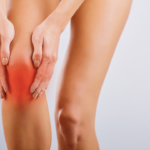Hello there! Do you know that a good diet can help you relieve chronic pain? Poor dietary intake is the primary cause of death. It is also the most modifiable risk factor for morbidity.
Also, high weight status and the possibility of having multiple diseases are linked to chronic pain.
Also, poor dietary habits and food quality are associated with chronic pain. Therefore, the connection between diet and strategies for managing chronic pain is essential.
Research has confirmed that good nutrition is an essential factor in pain management. However, before we proceed to the impact of nutrition on the best chronic pain treatment management, let’s see the meaning of chronic pain.
What Is Chronic Pain?
Chronic pain is an acute pain that’s persistent. It lasts more than three months. And can also last for years. People experience chronic pain for different reasons. Underlying health problems can cause it. It can also be caused by injury, injury to the nerve, sciatica, and more.

Pain is a normal body’s response to an injury or inflammation. Normal healing process results in a level of pain. This pain may be mild, depending on the degree of assault.
However, the pain is expected to go away on its own. The injury heals on its own. Pains that persist than three months is a Chronic pain
In addition, our health care center helps people that develop chronic pain get treated. Chronic Therapy helps with a pain management network. Chronic pain affects emotional health and the central nervous system.
People experience chronic pain in various parts of the body. Chronic pain can be psychogenic and can affect the spinal cord and spinal nerves.

Various reasons can cause chronic pain. It is necessary to be rightly diagnosed by a health professional. They will help get the chronic pain treated. They diagnose possible complex underlying causes of pain like cancer.
In addition, some cases of chronic pain aren’t caused by disease conditions. But as a result of injuries, scoliosis, or stress. Common causes of pain include inflammation and injury to the nerve, causing damage and sciatica. It can also be caused by fibromyalgia, arthritis, multiple sclerosis, etc.
Effects Of Good Nutrition On Chronic pain
- Quality dietary intake enhances the function of the central nervous system. As well as the immune and endocrine systems. Good nutrition directly impacts pain experiences in chronic pain treatment.
- A proper diet helps with losing and maintaining weight. This helps reduce the load on joints and reduces inflammation. People with chronic pain control pain disorders by maintaining their weight.
- Food habits and body weight affect people with chronic conditions. Conditions like diabetes, cardiovascular disease, and poor mental health. These conditions often occur with ongoing pain.
Effects of Low-Quality Diet On Chronic Pain
Low-quality dietary intake can result in a number of factors that can lead to greater risk.
- Low-quality nutrition can cause reduced mobility and functional strength. This will reduce the person’s ability to engage in physical activities. This results in increased pain signals.
- Chronic pain affects mental health leading to feelings of isolation, anxiety, and depression. This can lead to the intake of low-quality diets.
- It can also lead to insomnia which can lead to irregular eating habits. Also, insomnia can worsen persistent pain. So the combination of insomnia and low dietary intake is an obvious cause.
Nutrition And Chronic Pain Management
Chronic Therapy is a pain management network that treats chronic pain. As a result, they have a better understanding of pain medicine use and other management practices. But unfortunately, pain clinics have no specific cure to stop the pain.
However, they are not just prescribing opioids and nonsteroidal anti-inflammatory drugs NSAIDs. But they suggest therapies and lifestyle changes that can help manage chronic pain. They engage in physical, psychological, occupational therapy, and psychological approaches.
They also recommend a nutritionist that counsel you on dietary intake. Protect your body from oxidant damage by reducing inflammation.
Compounds called polyphenols are present in fruits and vegetables. Antioxidant and anti-inflammatory effects are found in polyphenols.
There’s a possibility that you experience chronic pain exacerbation during cooking. It could be challenging to incorporate a variety of fresh and colorful fruit and vegetables.
So we advise that you include variety. For example, use frozen mixed vegetables that can be incorporated into a stir fry. They can be easily used and can be stored for long periods. This will reduce your need to visit fruit and vegetable stores.
Another nutritious choice is to buy fruits and vegetables frozen. They retain their nutritional value. Each week, experiment with a different fruit variety and use frozen fruit (e.g., berries).
Moreover, stews and pasta meals might benefit from using reduced-salt canned veggies, such as tomatoes and lentils.
Try to incorporate veggies as a snack. In addition, make sure that half of your plate is filled with them during each main meal.

Furthermore, eat good and quality fats. For example, olive oil and omega-3 fatty acids both reduce chronic pain. They also strengthen the immune system.
To increase your intake of Omega-3s, try eating more oily fish. They include salmon and sardines. Also, include flaxseed or canola oil, linseed, and walnuts in your diet.
Try for at least two to three servings of oily fish each week. From stir-frying to roasting, extra virgin olive oil can be used in cooking. It can also be used to make salad dressings. Limit polyunsaturated fats like those in sunflower and safflower oils.
Also, reduce saturated and trans fats. Such as butter, processed and prepared foods, hydrogenated vegetable oils, etc.
In addition, avoid mineral and vitamin deficiencies. Common micronutrient deficiencies in people developing chronic pain. This includes Vitamin D, Vitamin B12, and magnesium.
Vitamin D comes mainly from exposure to sunlight. Vitamin D is an antioxidant and is connected with musculoskeletal conditions.
Nerve Pain related processes are influenced by vitamin B12 deficiency. Magnesium is linked to neuropathic pain, inflammation, and muscular spasm. Micronutrient deficiencies may make chronic pain worse.
Significantly, increase your water intake. Dehydration can increase sensitivity to chronic pain. It can also have other effects on health outcomes. For example, it affects people that are older. They experience poor wound healing and constipation.

Water is essential for the circulation of nutrients. And also waste elimination. They both can influence normal healing time and chronic pain. Thirst is often mistaken for hunger; if people drink enough water, they may consume less food.
Also, increase fiber intake. Fiber is crucial for proper digestion, healthy microbiota, and weight control. Therefore, it’s crucial to boost hydration consumption along with fiber intake. Together, hydration and fiber help to promote gut health.
In addition, reduce the consumption of processed foods and sugar. This is because they are high in energy. But very low in healthy nutrients.
Consumption of these meals and beverages increases the risk of chronic illnesses, including diabetes and cardiovascular disease.
Conclusion
Certain foods may aggravate chronic pain symptoms by increasing oxidation and inflammation. Therefore, we recommend that you adhere to the advice of your healthcare providers. This will help you actively manage chronic pain.
Related:
- How to Prevent Chronic Pain From Getting Worse
- Impacts of Nutrition on Chronic Pain Relief
- Medical Cannabis as Chronic Pain Medicine
- Illinois is awarding 55 more cannabis pharmacy licenses in the second of three license lotteries
- Central Coast winemakers and legal cannabis growers are looking for something in common





